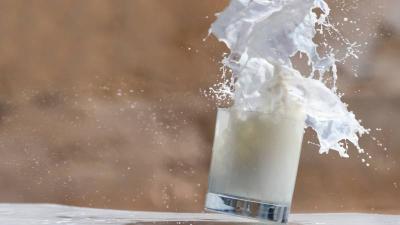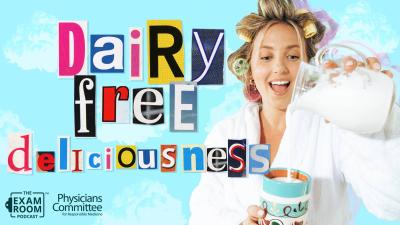CONGRESS: Don’t Bail Out Disease-Causing Dairy Industry

Exploiting economically disadvantaged people as a way to prop up dairy profits is wrong. But the dairy industry is at it again. The International Dairy Foods Association just asked Congress to bail out the tanking industry by coercing SNAP (formerly food stamps) participants to purchase more milk and cheese.
Exploiting economically disadvantaged people as a way to prop up dairy profits is wrong. But the dairy industry is at it again. The International Dairy Foods Association just asked Congress to bail out the tanking industry by coercing SNAP (formerly food stamps) participants to purchase more milk and cheese. It’s a bad idea targeting a population particularly vulnerable to heart disease, diabetes, and other conditions linked to dairy products.
On March 22, Michael D. Dykes, president and CEO of the International Dairy Foods Association, told the House Agriculture Committee that the association wants the Food Insecurity Nutrition Incentive (FINI) program—which is aimed at increasing fruit and vegetable consumption—to be reauthorized and expanded in the next Farm Bill to give SNAP participants incentives to purchase milk and dairy products.
“We believe adding voluntary incentives to encourage SNAP participants to increase their consumption of milk and dairy foods would be nutritionally sound and a wise use of taxpayer dollars,” said Dykes.
It would not. More milk means greater mortality risk from conditions including heart disease. Last month, the American Journal of Epidemiology published a study of more than 140,000 men and women. Those who consumed the most milk and the fewest servings of fruits or vegetables had higher mortality rates. The increase in risk was almost three-fold among the women participants.
But another study found that replacing dairy fats with plant-based foods decreases heart disease risk. This makes sense for SNAP participants, who are already at increased risk for death from heart disease.
A recent study in the American Journal of Public Health found that SNAP participants increased their risk of death from heart disease and had three times the diabetes mortality rate when compared to income-ineligible nonparticipants. They also had an increased risk compared to income-eligible nonparticipants.
Dairy products are also linked to cancer, hip fractures, and lactose intolerance, which affects approximately 65 percent of the human population.
The Healthy Staples Program, which I recently proposed in the American Journal of Preventive Medicine, is one possible remedy. It would encourage SNAP participants to choose a “package” of disease-fighting plant-based foods (with preparation tips and easy meal ideas) that participating grocers would supply.
The “Healthy Staples Program” could also save SNAP $26 billion each year. It would provide SNAP recipients abundant food and complete nutrition while reducing the average monthly benefit used per person from $126.39 to $78.66 each month. These cost savings can be reinvested into SNAP to expand its benefits.
The International Dairy Foods Association’s plan, on the other hand, would actually cost taxpayers, who are already paying tens of millions of dollars to bail out the dairy industry. Last August, the USDA announced that it would buy 11 million pounds of unwanted cheese at a cost of $20 million. Two months later, the USDA said it would buy an additional $20 million of cheddar cheese.
Continuing to bail out the dairy industry is a losing proposition. A recent report found that U.S. dairy sales will continue to decline until 2020 and that “growth of non-dairy milk will continue as consumers perceive it a better-for-you alternative to dairy milk.”
In response, Rep. Peter Welch of Vermont, Rep. Mike Simpson of Idaho, and Sen. Tammy Baldwin of Wisconsin recently introduced the Dairy Pride Act, to “defend” the dairy industry from plant-based products.
It’s too late. As more and more Americans ditch dairy products for healthy plant-based options, it’s unfair for the U.S. government to continue propping up the dairy industry by dumping disease-causing milk and cheese into nutrition assistance programs that should promote healthful foods instead.








